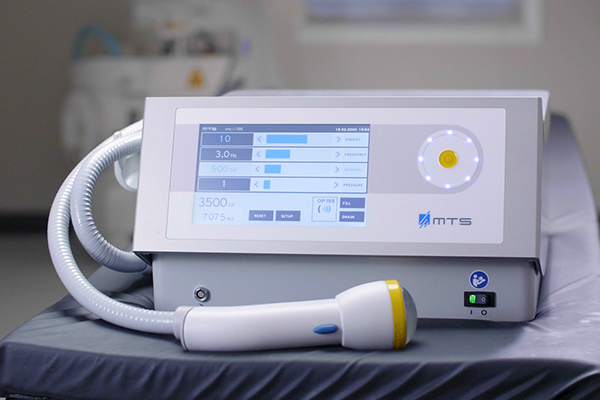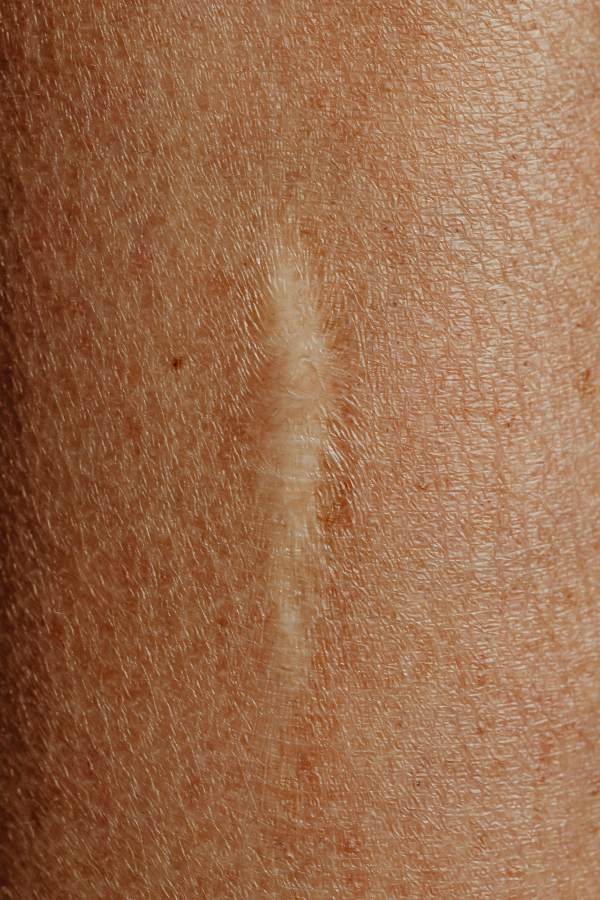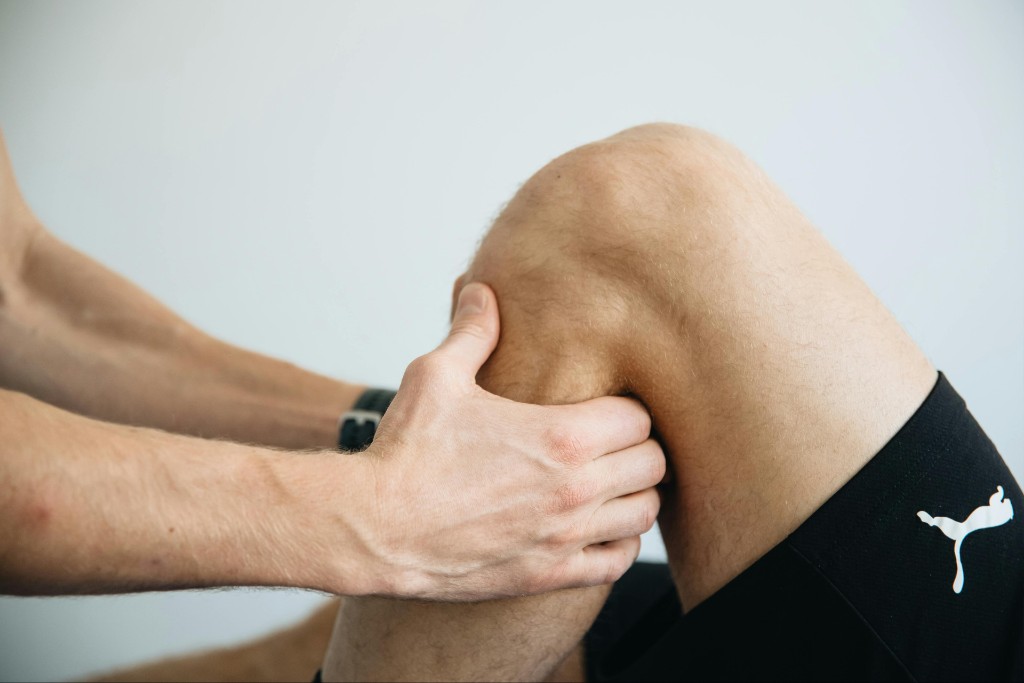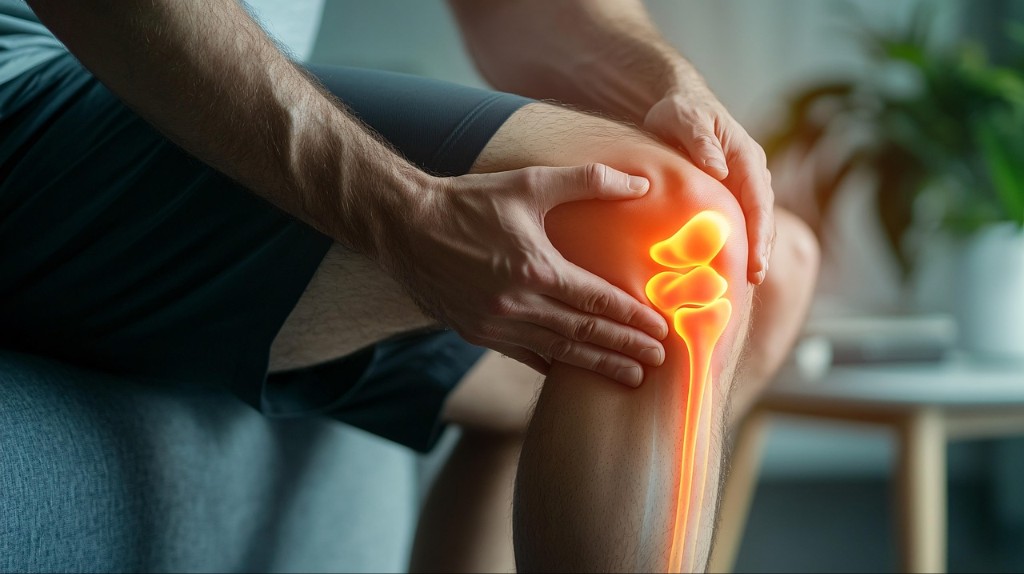Plantar fasciitis is a common culprit behind heel pain, but have you ever wondered if it can also affect your calves? The answer is yes. Plantar fasciitis and calf pain are often linked, creating a frustrating cycle of discomfort. Let’s explore the connection between these conditions and available treatment options.
How Plantar Fasciitis Can Cause Ankle Pain

The plantar fascia is a ligament-like structure that runs along the sole of your foot, supporting the arch. Inflammation in this area, a hallmark of plantar fasciitis, can affect your calves in two ways:
- Anatomical Connection: The plantar fascia and calf muscles are interconnected. Inflammation in the plantar fascia can irritate and tighten the calf muscles, leading to additional pain. Tight calves, in turn, can pull on the plantar fascia, worsening the initial pain. This creates a cycle of tension and discomfort.
- Altered Gait Mechanics: Plantar fasciitis pain often leads to changes in gait. You might subconsciously try to avoid putting pressure on your sore heel, altering your walking pattern. This altered gait puts extra stress on your calf muscles, potentially leading to overuse injuries.
Recognizing Plantar Fasciitis Beyond Heel Pain
While heel pain is the most common symptom of plantar fasciitis, it’s not the only one. You might also experience:
- Stiffness in your foot, especially in the morning.
- A stabbing or burning sensation in the heel.
- Difficulty flexing your foot upwards.
If you’re experiencing these symptoms alongside calf pain, plantar fasciitis could be the culprit.
Plantar Fasciitis Pain?
Target your heel pain without surgery. SoftWave Therapy is just $69 for your first session.

Treatment Options for Plantar Fasciitis and Calf Pain
Several approaches can address both plantar fasciitis and calf pain. Here’s an overview of some common options:
- Rest, Stretching, and Ice Therapy: These simple measures are crucial. Regular calf stretches alongside focused foot stretches can significantly improve flexibility and reduce pain. Applying ice packs to your heel and calf can also provide temporary relief.
- Orthotics and Supportive Footwear: Orthotics are shoe inserts that improve arch support and distribute pressure evenly across your foot. This reduces stress on the plantar fascia and, consequently, your calf muscles. Opt for supportive shoes with good cushioning to further improve comfort.
- Physical Therapy: A physical therapist can design a personalized exercise program to strengthen the muscles in your foot and calf, improving flexibility and reducing pain. Exercises specifically targeting calf strengthening will be crucial for addressing calf pain associated with plantar fasciitis.
- SoftWave Therapy: If conservative measures haven’t provided lasting relief, SoftWave Therapy might be an option. This non-invasive treatment uses broad-focused shockwaves for plantar fasciitis to stimulate healing in the plantar fascia. Studies have shown SoftWave Therapy to be effective in reducing pain and improving function in chronic plantar fasciitis.
- Medication and Cortisone Injections: Pain medication and cortisone injections can offer temporary pain relief. However, consulting a healthcare professional is crucial to determine if these options are right for you, considering potential side effects.
Read more about Non-Surgical Treatment Alternatives for Plantar Fasciitis
When to See a Doctor for Calf Pain Caused by Plantar Fasciitis
If your calf pain persists despite home remedies, worsens over time, or significantly restricts your mobility, consult a podiatrist. Podiatrists are foot and ankle specialists who can diagnose the cause of your pain and recommend the most appropriate treatment plan for plantar fasciitis and associated calf pain. They can also perform various diagnostic tests like X-rays or ultrasounds to confirm plantar fasciitis and rule out other potential causes for your calf pain. Early diagnosis and intervention are key to managing plantar fasciitis and preventing complications.
The Best Shockwave Therapy for Plantar Fasciitis
Are you looking for safe, reliable, and effective relief from plantar fasciitis and Achilles tendon pain?
SoftWave therapy is FDA-cleared, patented, and nationally recognized for its leading tissue regeneration technology. Unlike other types of high-energy shockwave treatments, SoftWave is the only shockwave therapy on the market that uses true broad-focused shock waves that treat larger and deeper areas of tissue.
Thousands of patients have experienced the benefits of SoftWave for plantar fasciitis and Achilles tendon pain, including:
- Little to no side effects
- Short treatment time
- Quick recovery
- Long-lasting results
Find a SoftWave Therapy provider near you or learn more about SoftWave and whether or not you’re eligible for full treatment today!
New Patient Special
Try SoftWave for just $69 at a clinic near you and learn if you’re a candidate for full treatment




